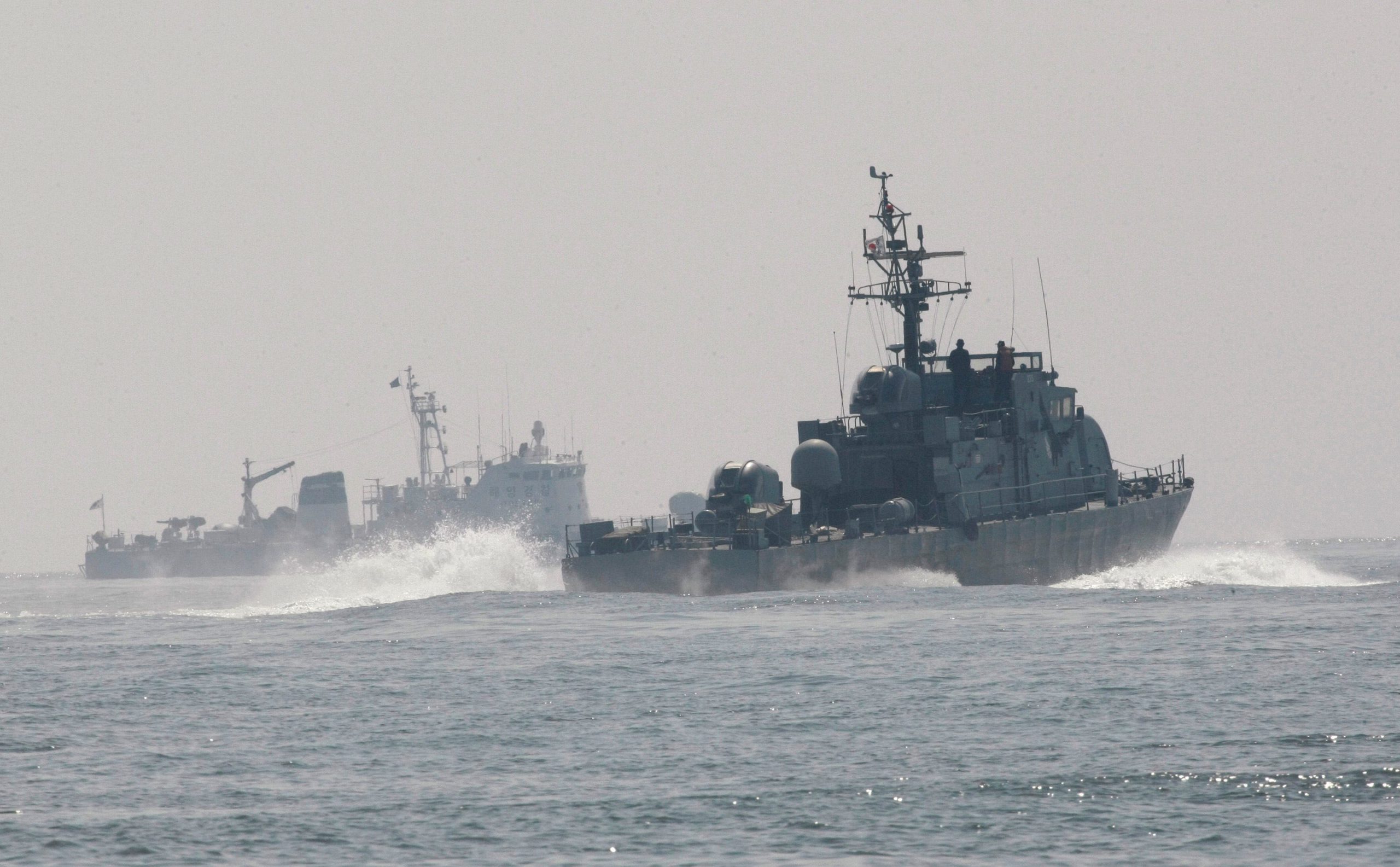

SEOUL, South Korea – South Korea’s military says it fired warning shots to repel a North Korean patrol vessel that temporarily crossed the countries’ disputed western sea boundary while chasing a Chinese fishing boat.
The North Korean patrol boat crossed the so-called Northern Limit Line at around 11 a.m. Saturday while pursuing the Chinese boat in waters near South Korea’s Baekryeong island but immediately retreated after a South Korean naval vessel fired warning shots, South Korea’s Joint Chiefs of Staff said Sunday.
While there were no exchanges of fire between the North and South Korean vessels, the South Korean high-speed vessel collided with the Chinese boat as it responded to the intrusion amid poor visibility, causing bruises and other minor injuries to some of the South Korean sailors.
The Joint Chiefs of Staff said the South Korean military is closely monitoring North Korean military activities while preparing for various possibilities of provocations.
South Korea’s navy has often fired warning shots to repel North Korean vessels crossing the countries’ poorly marked sea border, but there also have been some deadly clashes over the years. South Korea blamed North Korea for an attack on a South Korean warship that killed 46 sailors in 2010, but the North has denied responsibility.
Saturday’s intrusion came amid heightened tensions in the region as the pace of both North Korea’s weapons demonstrations and the U.S.-South Korean joint military exercises aimed at countering the North Korean threat have intensified in a cycle of tit-for-tat.
World:Sudan's army and rival force battle, killing at least 56
Armed forces:Just 10 years ago, women were banned from combat. Now, they're on the front lines, climbing the ranks.
The South Korean and U.S. militaries will conduct another large-scale joint exercise from next week involving some 110 warplanes, including advanced F-35 fighter jets. South Korea’s Defense Ministry said the aerial drills, which will be begin Monday and continue through April 28, are aimed at sharpening combined operational abilities and demonstrating the allies’ joint defense posture in the face of North Korean threats.
North Korea last week staged one of its most provocative military displays in years by test-launching what it described as a solid-fuel intercontinental ballistic missile, which if perfected could potentially give the North a more powerful and harder-to-detect weapon targeting the mainland United States.
South Korean officials also say North Korea has not been responding to South Korean calls on a set of cross-border inter-Korean hotlines for more than a week, which raises concerns about potential kinetic provocations as communications on those channels are meant to prevent accidental clashes along the rivals’ sea borders.
The U.S. and South Korean militaries conducted their biggest field exercises in years last month and separately held joint naval and air force drills involving a U.S. aircraft carrier strike group and nuclear-capable U.S. bombers. The exercises prompted fierce protests from the North, which describes those drills as invasion rehearsals while continuously using them as a pretext to push forward its own weapons development.
Since the start of 2022, North Korea has test-fired more than 100 missiles into the sea, including three different types of ICBMs and various shorter-range missiles it describes as battlefield nuclear weapons, as it tries to display a dual ability to conduct nuclear strikes on both the U.S. mainland and South Korea.
South Korea has patrolled waters around the Northern Limit Line for decades after it was drawn up by the U.N. command at the end of the 1950-53 Korean War. North Korea does not recognize the line and insists upon a boundary that encroaches deeply into waters controlled by the South.
President Joe Biden and first lady Jill Biden are expected to host South Korean President Yoon Suk Yeol and the country's first lady, Kim Keon Hee, for a state visit later this month.
The White House in a statement last month said the visit "celebrates the 70th anniversary of the U.S.-(Republic of Korea) alliance, which is critical to advancing peace, stability, and prosperity for our two countries, the Indo-Pacific, and around the world."
Source link








